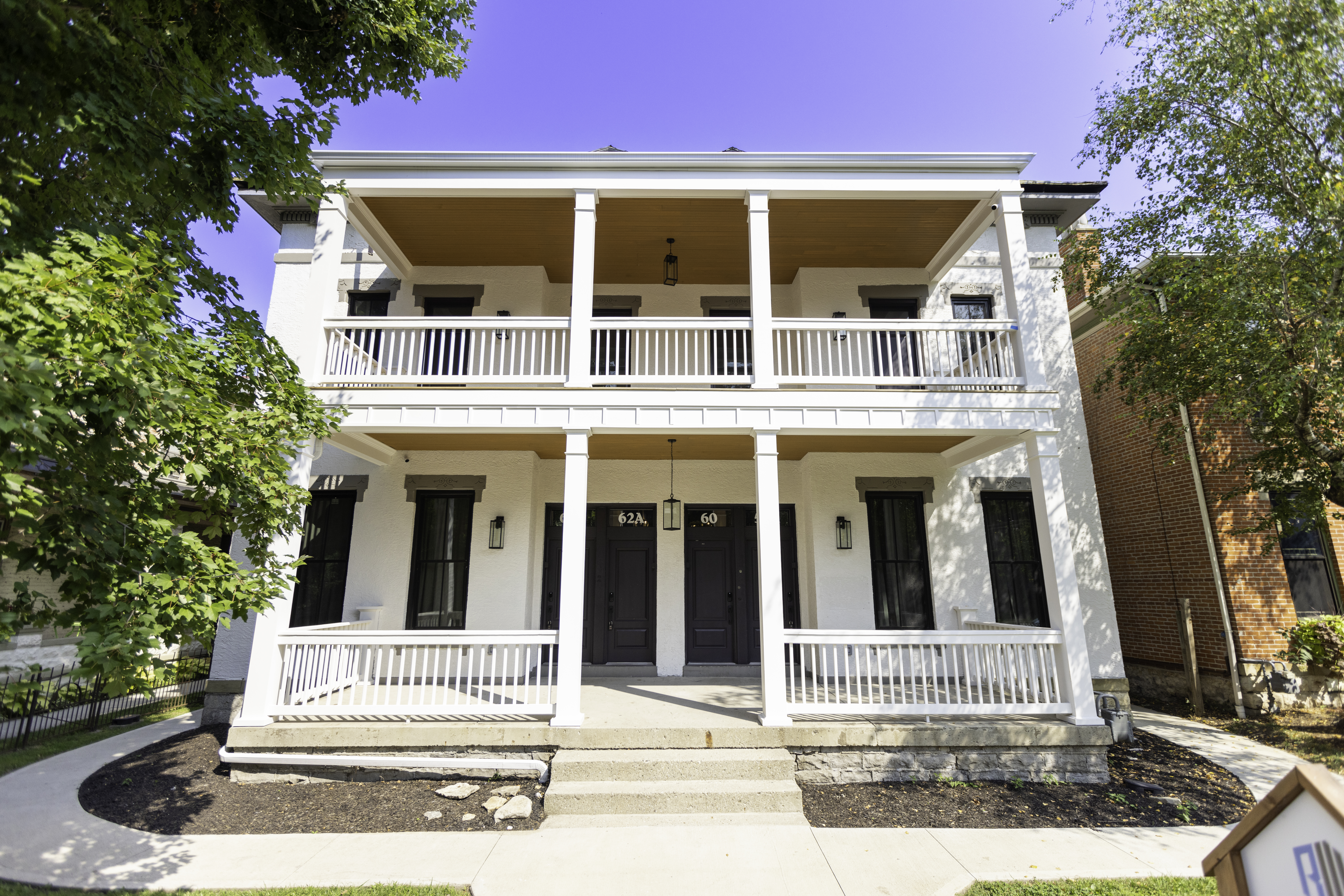
Is Your Airbnb Protected? Key Steps Every Host Needs To Take To Prevent Bed Bugs!
They are the three words every short-term rental host dreads hearing. I’m talking about bed bugs. Just thinking about them can make your skin crawl, but you have to push past that feeling. Ignoring this topic won’t make it go away, and it could cost you thousands of dollars and tank the reputation of your vacation rental.
So many hosts believe their property is too clean for a bug infestation, but that is a dangerous myth. The truth is, these pests don’t care about your five-star cleaning rating; they’re looking for something else entirely. You’ll learn how to handle every aspect of bed bug prevention Airbnb right here.
This guide will walk you through exactly what you need to know about a solid plan for bed bug prevention Airbnb and what to do if the unthinkable happens.
We’ve rounded up all of our Airbnb Hosting Must-Haves right here in our Amazon Store. Click here to grab everything you need to curate your property and start earning 5-star reviews.
The Real Story on Bed Bugs in Your Rental
- The Real Story on Bed Bugs in Your Rental
- Proactive Steps for Bed Bug Prevention at Your Airbnb
- A Guest Reports Bed Bugs. Now What?
- Creating Your Official Bed Bug Response Plan
- Foster a Culture of Open Communication
- What to Do if an Infestation Is Confirmed
- Conclusion
The Real Story on Bed Bugs in Your Rental
Let’s get one thing straight right away. Having bed bugs has nothing to do with being dirty. These critters aren’t after the crumbs you might have missed; they are after one thing: human blood. A warm bed where a person sleeps is their version of a five-star restaurant.
A guest brings bed bugs into a perfectly clean home more often than you think. You could have the most sanitary home on the block, but if a guest unknowingly brings one in on their luggage, you have a potential problem. These pests are expert hitchhikers, and their resurgence is tied to the ban of certain powerful chemicals and the ease of global travel.
They hide in tiny crevices during the day, making them hard to spot. A full-blown bed bug infestation can start from a single pregnant female. Common signs of their presence include small, reddish-brown or dark stains on bed linens, itchy bites on guests that appear in lines or clusters, and sometimes a faint, sweet, musty odor in the room.
Want to make sure your rental is set up for success from the start? Our free Airbnb Essentials Checklist will walk you through everything you need to stock your space with confidence. From must-have linens to backup supplies, this printable guide ensures you’re fully prepped—no scrambling last-minute. Download the checklist now and take one more step toward creating a 5-star guest experience.
Proactive Steps for Bed Bug Prevention at Your Airbnb
An ounce of prevention is truly worth a pound of cure, especially with these pests. While you can’t build an impenetrable fortress, you can take smart, simple steps. These actions will greatly reduce your risk and put you in a position of control.
Be Very Careful with Secondhand Furniture
We all love sustainability and finding a great deal on a piece of furniture with character. But that amazing vintage armchair or thrift store headboard could be hiding a dark secret. Upholstered items are the biggest risk, but bed bugs can also hide in the cracks and joints of a wooden bed frame.
You don’t have to completely swear off used items, but you do need to be incredibly selective. If you opt for used furniture, consider a metal bed frame, as metal surfaces are less appealing to these pests. Always thoroughly inspect any item before bringing it into your living space, paying close attention to seams, joints, and screw holes.
Picking up a sofa off the street is a huge gamble that can easily lead to bug infestations. If you shop at consignment or antique stores, ask them what measures they take to inspect for pests. A reputable store will have a clear process and will be happy to explain it to you.
Invest in High-Quality Encasements
You absolutely must have protective encasements on every mattress and pillow in your rental. This is one of the most effective preventative measures you can take. Look specifically for zippered encasements that are certified bed bug-proof, not just a simple mattress cover that is waterproof.
These special covers have tiny zipper teeth and a mechanism to block pests from getting in or out. According to experts at Good Housekeeping, these encasements seal off the mattress and box spring, which are the most expensive items to treat or replace. Protecting your box springs is just as important as the mattress, so get covers for both.
Skipping pillow protectors is a common mistake, but you need to protect those as well. Regularly washing all bed linens in hot water is also a good idea. Encasements make inspection easier and stop a small problem from turning into a massive bed bug infestation.
Keep a Dedicated Vacuum at Your Property
This one might surprise you, and it sometimes stops cleaning teams in their tracks. Do not let your cleaners bring a vacuum they have used at other properties into your rental. A vacuum can easily suck up bed bug eggs or adults from one location and transport them to the next.
The last thing you want is for an issue from another property to become your problem. Explain your reasoning to your cleaners. If it’s a new relationship, you can even ask them what vacuum they love and offer to purchase it for your unit to keep your property clean.
This simple rule also contains any other dirt or allergens to your specific property. A thorough deep cleaning between guests is crucial. A dedicated vacuum is just a smarter, more hygienic way to operate your business.
Check Your Insurance Policy Immediately
Now is the time to read the fine print on your short-term rental insurance policy. Many hosts are shocked to discover that bed bug treatment and loss of income are often not covered. AirCover, Airbnb’s host protection, is also not a solution for this particular problem, so you need to check if your other insurance policies cover it.
Some specialty insurance policies do offer this coverage, but they can be expensive. A guest bitten by bugs may try to claim for medical expenses or emotional distress. Understanding what your policy covers before an incident occurs is critical for any Airbnb host.
If you choose not to get this specific coverage, you need another plan. You should create a separate savings fund for emergencies like this. Having cash set aside means a bed bug issue will be an unfortunate business expense, not a financial crisis that threatens your entire operation.
A Guest Reports Bed Bugs. Now What?
Getting that message or call from an Airbnb guest can send your heart into your throat. It’s easy to either panic or get defensive and assume it’s a scam. You must resist both of those impulses and handle the situation with a clear, professional plan.
First, Stay Calm and Act Quickly
The moment a guest mentions bug bites or seeing a bug, the clock starts ticking. The first step is to take a deep breath. Your response will set the tone for the entire interaction, especially if they threaten to report inappropriate content.
Listen to their complaint fully and express empathy, even if you are skeptical about their claims of itchy bites. Immediately start documenting everything. If they call you, follow up with a message in the platform’s app saying something like, “Per our phone call, I am looking into this for you right now.”
This creates a written record that shows you are being responsive. This is important for your own records and for the platform. Swift action shows you take guest safety seriously.
Communicate Like a Seasoned Pro
Imagine how much better a guest will feel if your response is, “Thank you so much for bringing this to my attention. We take this very seriously and have a process in place.” It shows them you are in control and not panicking. Let them know you’ll be calling your professional pest control partner to schedule an inspection immediately.
You should also educate the guest. Let them know that if there is an issue, they shouldn’t move their belongings to another location without being careful. You can advise them that drying all their clothing on high heat for at least 30-60 minutes can kill any bugs.
You could even offer to have their luggage stored and professionally treated or disposed of if an issue is confirmed. An informed guest is a calmer guest. Your professionalism can prevent a bad situation from escalating.

Know How to Handle Relocations
If a guest is upset, it might seem easiest to just move them to another one of your rental units. This is a bad idea. If the current property does have a bug infestation, you risk infesting a second property when the guest brings bed bugs with them.
It’s better to help them find a different accommodation while you sort out the issue at your place. This contains the problem and protects your other assets. You should also be alert for the reverse situation.
If a guest asks for a last-minute booking because they are leaving a hotel with a suspected bed bug issue, you should be very cautious. The last thing you want is for them to bring that problem to your Airbnb vacation rental. It’s okay to politely decline in these situations to prevent bed bugs from entering your property.
Creating Your Official Bed Bug Response Plan
Moving from a reactive to a proactive host means having standard operating procedures (SOPs) for problems. Having a written plan for bed bugs takes the guesswork and emotion out of a crisis. You’ll just be following the steps you’ve already laid out.
Train Your Cleaning and Inspection Team
Your cleaner is your most important partner in the fight to prevent bed bugs. They are in your property after every single guest leaves and can be your first line of defense. But you can’t assume they know what to look for.
You need to train them on these specific preventative measures. Show them pictures of what bed bugs and their signs look like. The University of Minnesota has a great visual guide to help. Create a simple checklist for them to inspect mattresses, headboards, and couches after each stay.
Making this a routine part of their turnover clean could save you a huge headache down the road. This deep cleaning and inspection protocol is essential for every Airbnb host. Here is a sample checklist:
| Location | What to Look For |
|---|---|
| Mattress & Box Spring | Check all seams, tufts, and folds. Look for dark stains, tiny white eggs, or live bugs. |
| Bed Frame & Headboard | Inspect all cracks, joints, and screw holes. Remove the headboard from the wall if possible to check behind it. |
| Bedside Furniture | Empty drawers and check inside and underneath nightstands and dressers. |
| Upholstered Furniture | Remove cushions from couches and chairs. Check seams, zippers, and crevices thoroughly. |
| Baseboards & Outlets | Check along the baseboards near the bed. Look around electrical outlet plates. |
| Luggage Racks | Inspect joints and straps on any luggage racks provided for guests. |
Foster a Culture of Open Communication
Once your team is trained, you need to make them feel comfortable reporting what they find. Let your cleaner know that finding a potential issue is not a reflection of their work. In fact, finding it early is a sign they are doing a fantastic job.
This culture of transparency is vital. If they fear being blamed, they might not tell you about something suspicious right away. That delay could turn a small, contained problem into one of the worst bed bug infestations.
This applies to your business partner or anyone else helping you manage your properties, too. Fostering this environment is always a good idea. The goal is to identify and resolve issues before they impact any Airbnb guests.
Build a Relationship with an Exterminator Now

Do not wait until you have a panicked guest on the phone to start using a search word like “exterminators near me.” You should research and interview pest control companies today. Find a professional who has experience with short-term rentals and understands the urgency of bed bug treatment.
Ask them about their process. Can they come out for an inspection quickly, maybe even same-day? What does an inspection cost? Do they provide the written documentation you would need to show a platform like Airbnb?
Also ask about their bug treatment methods—whether they use heat, chemicals, foam sealant for cracks, or even specially trained dogs—and what happens if a problem is confirmed. Having a trusted expert on call provides immense peace of mind.
What to Do if an Infestation Is Confirmed
If your professional inspector confirms that you have bed bugs, there is only one acceptable next step. You must immediately block your calendar and close your property to new guests. It may be tempting to try to squeeze in one more booking, but that would be a terrible mistake.
Doing so breaks the trust guests put in us as Airbnb hosts and puts them at risk. They could bring bed bugs home with them, spreading the problem. It also puts your cleaning team at risk.
It is your responsibility to contain the problem and arrange for a professional bug treatment. You do not want to become the host that gives the entire industry a bad name. The sooner you act, the more likely you can contain the issue to a single bedroom, which will significantly reduce your treatment costs and downtime.
Takeaways
This topic is not fun, but being prepared for it is a hallmark of a professional host. You can’t stop a guest from unknowingly carrying a bed bug into your property. But you can control what happens next.
Having a system in place turns a potential crisis into a manageable business challenge. Implementing these steps for bed bug prevention Airbnb protects your property, your reputation, and your income. When you have a clear plan, you have peace of mind, and you can focus on giving your guests a fantastic experience.
Being proactive is key in hosting—and that goes beyond bed bugs. One of the easiest ways to earn rave reviews? Anticipate guest needs before they even ask. Our free “Forgot Something?” Basket Checklist shows you exactly what to include in a bathroom or entryway kit so guests feel taken care of, even when they forget the essentials. Grab your free copy and set yourself apart from the competition.
Calling All Hosts: The Hosting Handbook
If you loved this post we invite you to check out our one-stop-shop solution for hosts everywhere —the Hosting Handbook! While you can download all the easy to consume, step-by-step tips we use in our own hosting business and create the ultimate “book” the Hosting Handbook is so much more than that! If you’ve consumed or content for years (or just met us!) this is the reference guide for all the amazing and tactical tips we have for running a profitable and, more importantly hospitable, short-term rental. How do we price for pets? How do we fold our towels? What sheets do we buy? How do I purchase a short-term rental? All these questions (and more!) can be answered in the Hosting Handbook! Check it out now!
Happy Hosting!



show comments
HIDE comments